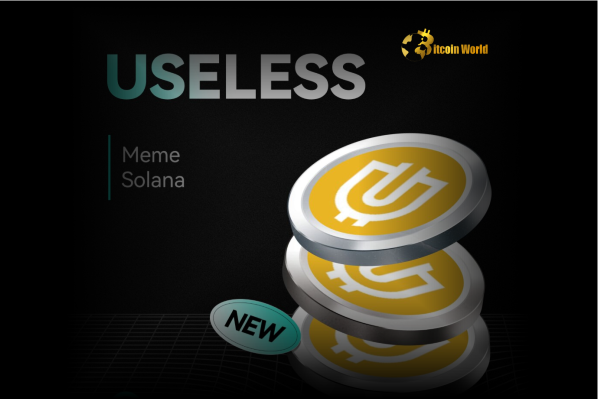BitcoinWorld

Urgent Solana Security Warning: Co-founder Raj Gokal Details Hacking Attempts
In the fast-paced world of cryptocurrency, staying ahead of potential threats is paramount. A recent warning from Solana co-founder Raj Gokal has underscored this critical need, bringing the topic of Solana security back into sharp focus. Gokal revealed that he has been a target of persistent hacking attempts on his personal accounts over the past week, prompting him to alert the wider community.
What Raj Gokal Revealed About Ongoing Threats
Raj Gokal took to social media platform X (formerly Twitter) to share his personal experience with attempted security breaches. He stated that attackers have been actively trying to compromise various aspects of his digital life, including:
- Email accounts
- Social media profiles
- Other sensitive online accounts
This revelation from a prominent figure within the Solana ecosystem serves as a stark reminder that no one is immune to these sophisticated attacks. Gokal specifically warned the community about suspicious activity, highlighting that signs like unexpected token launches or unsolicited requests for funds could be indicators of a successful compromise of someone’s account.
Understanding the Landscape of Crypto Hacking
The cryptocurrency space, due to its decentralized nature and the value stored within digital assets, has unfortunately become a prime target for malicious actors. Crypto hacking encompasses a wide range of tactics aimed at stealing funds, compromising accounts, or disrupting network operations. These attacks can target individuals, exchanges, protocols, or even blockchain networks themselves.
Common methods used in crypto hacking attempts include:
| Attack Method | Description | How it Targets Users/Platforms |
|---|---|---|
| Phishing | Deceptive communications (emails, messages) designed to trick users into revealing sensitive information like private keys or login credentials. | Targets individuals directly by impersonating trusted entities (wallets, exchanges, projects). |
| Malware | Malicious software installed on a user’s device to steal data, log keystrokes, or gain unauthorized access to wallets. | Compromises user devices, potentially leading to theft of private keys or seed phrases. |
| Social Engineering | Manipulating individuals into performing actions or divulging confidential information. This is often linked to phishing attempts. | Exploits human psychology rather than technical vulnerabilities. |
| Exploits (Smart Contract/Protocol) | Identifying and leveraging vulnerabilities in the code of smart contracts or blockchain protocols. | Targets decentralized applications (dApps) or the blockchain itself, often leading to large-scale fund losses. |
| Account Takeovers | Gaining unauthorized access to a user’s online accounts (email, social media, exchange accounts) through various means (stolen passwords, session hijacking, etc.). | Allows attackers to impersonate the user, access linked services, or initiate unauthorized transactions. |
Raj Gokal’s warning specifically points to the ‘Account Takeover’ category, emphasizing that attackers aren’t just targeting crypto wallets directly but also the peripheral accounts that can potentially lead to compromising crypto assets or reputation.
Why Solana Security is a Constant Point of Discussion
Solana has gained popularity for its high transaction throughput and low fees, but like any complex blockchain ecosystem, it faces ongoing security challenges. Discussions around Solana security often involve network stability, smart contract risks, and user-level protection. While the core Solana protocol has robust security measures, the broader ecosystem, including wallets, dApps, and associated services, presents potential attack vectors.
The fact that a co-founder’s personal accounts are being targeted highlights that attackers are looking for any weak point, not just technical vulnerabilities within the protocol itself. Compromising a prominent figure could be used for scams, spreading misinformation, or gaining access to sensitive information related to the project’s development.
Actionable Steps for Enhanced Account Security
Raj Gokal’s warning comes with a clear call to action: stay vigilant. Protecting your account security in the crypto space requires proactive measures. Here are some essential steps individuals can take:
- Enable Two-Factor Authentication (2FA): Use 2FA on all your crypto-related accounts (exchanges, wallets, email associated with crypto). Hardware-based 2FA (like YubiKey) is generally more secure than SMS or app-based methods.
- Use Strong, Unique Passwords: Never reuse passwords across different services. Use a password manager to create and store complex, unique passwords.
- Be Wary of Phishing Attempts: Always double-check the sender’s email address and the URL of websites before entering any credentials or sensitive information. Don’t click on suspicious links.
- Secure Your Email Account: Your email is often the recovery method for many other accounts. Ensure your primary email has strong security measures, including 2FA.
- Keep Software Updated: Ensure your operating system, browser, antivirus software, and wallet applications are always up to date to patch known vulnerabilities.
- Be Skeptical of Unsolicited Messages: Treat any unexpected messages, especially those asking for information or promoting urgent actions (like claiming tokens), with extreme caution. Verify information through official channels.
- Hardware Wallets: For storing significant amounts of cryptocurrency, consider using a hardware wallet. These devices keep your private keys offline, making them highly resistant to online hacking attempts.
- Educate Yourself: Stay informed about common scam tactics and security best practices in the crypto space.
Staying Vigilant in the Face of Evolving Threats
The threat landscape in cryptocurrency is constantly evolving. Attackers are becoming more sophisticated, adapting their methods to bypass security measures. This is why continuous vigilance is crucial. Raj Gokal’s experience is a timely reminder that the risk is real and affects everyone, regardless of their standing in the community.
Paying attention to warnings from trusted sources, like project co-founders, is vital. If you see suspicious activity related to an account you follow, especially if it involves unusual requests or announcements, it’s better to err on the side of caution and verify the information through alternative, official channels.
Maintaining robust account security isn’t just about protecting your funds; it’s also about preventing your accounts from being used to scam others or spread misinformation, which can damage the reputation of projects and the community as a whole.
Conclusion: A Call for Heightened Security Awareness
Raj Gokal’s public warning about persistent hacking attempts serves as a critical alert for the entire Solana community and the broader crypto world. It underscores the reality that malicious actors are relentless in their efforts to compromise digital assets and identities. By understanding the common threats, implementing strong account security measures, and remaining vigilant against suspicious activity, users can significantly reduce their risk of falling victim to crypto hacking.
This incident reinforces the principle that security is a shared responsibility. While core blockchain technology continues to advance, the weakest link is often at the user level. Let Gokal’s experience be a catalyst for everyone to review and strengthen their personal security practices.
To learn more about the latest crypto market trends and Solana security developments, explore our article on key developments shaping the crypto space and institutional adoption.
This post Urgent Solana Security Warning: Co-founder Raj Gokal Details Hacking Attempts first appeared on BitcoinWorld and is written by Editorial Team





